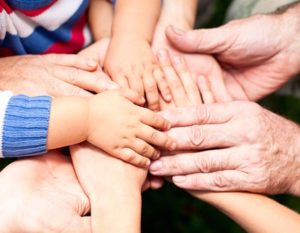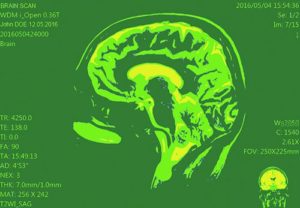Brain Support Network has helped over 1,400 families in the United States successfully accomplish brain donation. We are honored to assist your family, too.
Whether you are planning in advance or thinking about this when end of life may be days away, thank you for considering brain donation! We are sorry for the stress you are under: coping with neurological decline is not easy. We can make the brain donation go as smoothly as possible.
Why Donate?
The two key reasons to donate your brain or a loved one’s brain are:
- To obtain a confirmed diagnosis (from an autopsy report), and
- To support research into the causes, treatments, and cures for neurodegenerative disorders.
The only way to obtain a confirmed diagnosis is through post-mortem tissue examination. At least half of the families we’ve assisted have been surprised by the confirmed diagnosis. Clinical diagnostic accuracy varies from 22% to 86%. A confirmed diagnosis, delivered via autopsy following brain donation, can bring peace of mind to children and grandchildren.
 Many families believe that generously enabling research is the ideal way to turn a sad situation into a positive. Families report a strong sense of satisfaction at having done something to fight back against neurodegeneration. One family viewed brain donation as life-affirming.
Many families believe that generously enabling research is the ideal way to turn a sad situation into a positive. Families report a strong sense of satisfaction at having done something to fight back against neurodegeneration. One family viewed brain donation as life-affirming.
Families are right to feel proud of their loved one’s generosity to the larger community.
Eligibility
Today, brain banks focused on neurodegenerative diseases are interested in brain donation from persons with diagnoses such as Early Onset Alzheimer’s Disease, Parkinson’s Disease, Lewy Body Dementia, Frontotemporal Dementia, Progressive Supranuclear Palsy, Multiple System Atrophy, Corticobasal Degeneration, etc.
Generally, brain banks do not accept brain donations from those diagnosed with more common disorders, like Late-Onset Alzheimer’s and vascular dementia. For Alzheimer’s Disease cases, exceptions are made for those diagnosed before age 60 (current age can be higher), or who are non-Caucasian, or those with a family history of AD or other dementia (usually two first-degree relatives plus the intended donor). See our FAQ for more about eligibility.
Of the 1,400 families we have helped, most brains have been donated to the Mayo Clinic brain bank in Jacksonville, Florida. Some have been donated to the Mayo Clinic brain bank in Rochester, Minnesota. We have also helped people donate tissue to other brain banks: University of California (San Francisco and Davis), Columbia University, University of Miami, Harvard, Northwestern, Rush, etc.
Cost of Brain Donation
The average cost to families to accomplish brain donation is about $1,000. Fees are paid directly to the pathology specialist and funeral home (or cremation organization). BSN charges no fee, but gratefully accepts charitable contributions from families who are able.
For many disorders (PSP, CBD, MSA, FTD, PPA, Pick’s), a reimbursement grant of up to $1,000 is available to families from another non-profit organization, upon submission of receipts and a W9 tax form. For some disorders (PD, LBD, early onset Alzheimer’s), a grant is available from BSN to families with a financial need. See our FAQ for more about cost.
Our nonprofit, Brain Support Network, charges no fee, but requests every family we help to make a charitable contribution of at least $500 so that we may help another family with brain donation. In this pay-it-forward approach, past families’ contributions allow us to help your family, and your family’s contribution allows us to help another family or families. For $500, we can help one family; for $1000, we can help two families; and so on. Families without the financial means to donate themselves may request memorial donations to BSN in lieu of flowers. Some families both request memorial donations in lieu of flowers, and then donate up to $500 or $1000 or whatever amount suits them.
Process of Brain Donation
 Each brain donation arranged by Brain Support Network is customized for the intended donor and family. While all arrangements are individually organized, families and our organization follow specific critical steps to ensure brain donations are completed successfully.
Each brain donation arranged by Brain Support Network is customized for the intended donor and family. While all arrangements are individually organized, families and our organization follow specific critical steps to ensure brain donations are completed successfully.
Download our Process for Brain Donation sheet for a simple, visual outline of the important steps listed in chronological order. This outline provides a realistic overview of the entire process.
As suggested in this visual outline, Brain Support Network is guiding your family every step of the way.
Brain Donation Brochures
We have four 8.5 x 11-inch tri-fold brochures describing brain donation. These brochures are suitable for color or black-and-white printing. Download our four brochures about brain donation to enable research for certain disorders:
Contact Us
Contact us to investigate brain donation for your family. Of course, it is less stress for your family if you contact us before end of life is imminent or has occurred. In any case, we will help you as best we can.
ARRANGE A BRAIN DONATION
…to receive a confirmed diagnosis and to
contribute to the search for a cure.
end of life is within a monthend of life is months/years away




